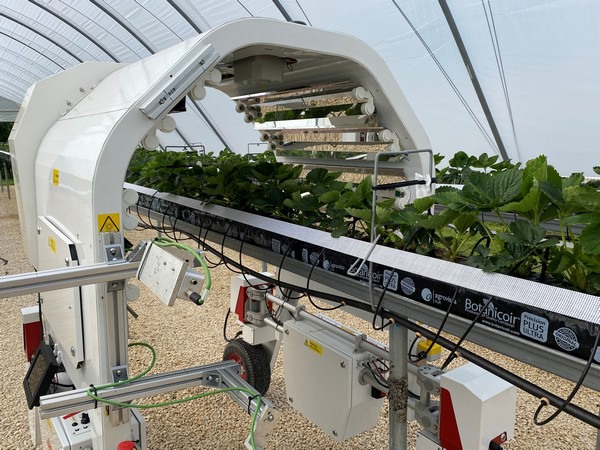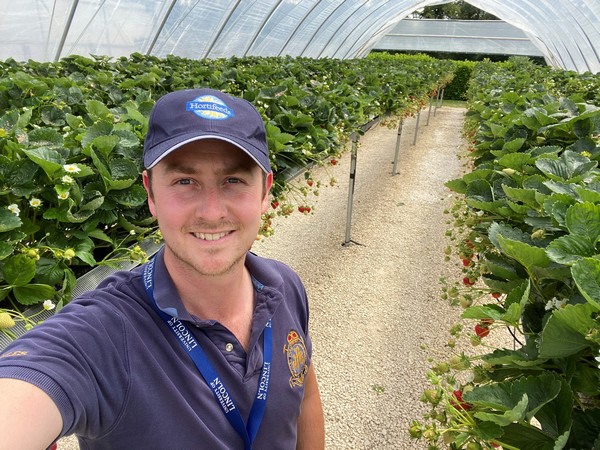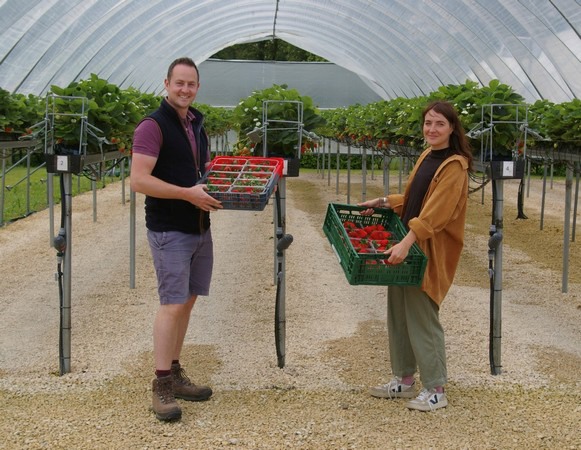The University of Lincoln’s 200-hectare Riseholme Campus is using AI and robotics to find solutions to key issues in farming and food production.
Among other agricultural and horticultural research facilities, the strawberry farm is where a significant amount of research and development into agricultural robotics is carried out.
“We try to make our strawberry research farm as commercially representative as possible. We grow on a tabletop system under plastic, and the whole site is controlled via a PIP irrigation system. Crucial to this style of growing is the use of high-quality coir grow bags,” explains Jonathan Trotter, research project coordinator at the University of Lincoln.

“Precision Plus Ultra Botanicoir grow bags have been donated to extend the longevity of our research. A stable and consistent growing media is essential when conducting trials and research. The bags are great to work with, and I’ve found they hydrated much more quickly than other bags we have used before,” he says.
Innovative strawberry-growing tech
The research farm currently facilitates Innovate-UK and Berry Garden-funded projects, which include FIRST FLEET, GRASPBERRY, and FASTPICK, all of which make use of the strawberries grown on the farm to develop logistical robotics, test UVC light treatment technology, and advance picking robots.
“For the UVC light treatment trials, we use arch-shaped robots developed by Saga Robotics, which drive over the rows, applying UVC light to the crops while they move along, targeting and treating Powdery Mildew, one of the biggest disease threats to strawberry production,” says Jonathan.
“Some of our robots count flowers, visualize how many berries are green, and can work out how long they’ll take to become ripe. They can even predict the weight of an individual berry before it’s picked,” says Jonathan.

“Projecting yield means increased supply chain efficiency because farmers can predict what labor will be required to pick the fruit. Some of our Ph.D. students are currently working with this information to then furthermore better place pickers in higher density areas,” he says.
Projects are also developing robots that can identify ripe berries in a cluster and then pick them. “At the moment, Saga Robotics and University team members are working to improve the speed of this robot so that it can aid humans and can work for longer,” says Jonathan.

Berry Gardens has been working with the University and supporting the projects financially since its inception. “Without their support and donations like Botanicoir’s, we wouldn’t have such facilities for the research we look at,” adds Jonathan.
The Riseholme campus is home to the Lincoln Institute for Agri-Food Technology (LIAT), including Lincoln Agri-Robotics and Lincoln’s EPSRC Centre for Doctoral Training in Agri-Food Robotics: AgriFoRwArdS.
The Lincoln University research facility has sourced the Botanicoir grow bags from its UK distributor, Agrovista.
For more information: Botanicoir
Botanicoir
Unit 212
The Light Bulb
1 Filament Walk
London
SW18 4GQ
T: +44(0)207 118 0788
F: +44(0)207 691 9526
info@botanicoir.com
www.botanicoir.com
